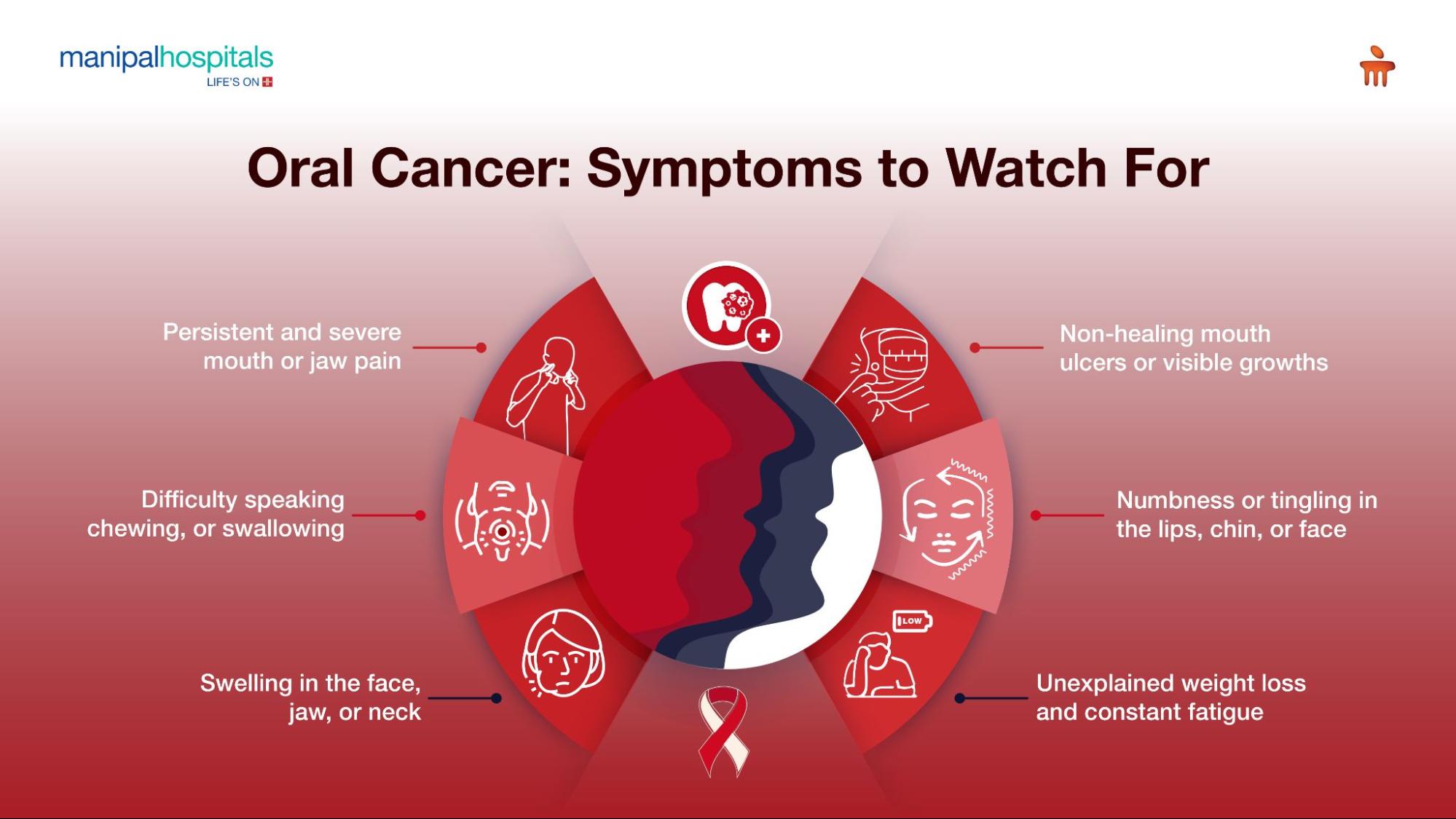
Oral cancer is a life-threatening condition that can have a significant impact on a person’s health, especially when it reaches the last stage. In early stages, oral cancer may be mistaken for minor health issues, but in the oral cancer last stage, symptoms are more aggressive and severely affect a patient’s quality of life. Understanding these signs, available treatments, and symptom management strategies is key for patients and caregivers.
This guide will help you understand what to expect in stage 4 mouth cancer, how it manifests, and how it differs from other medical conditions that may present with symptoms like abnormal bleeding, fatigue, or weight loss, such as polycystic ovary syndrome (PCOS) or hormone imbalances.
Synopsis
Understanding Stage 4 Oral Cancer
Also known as mouth cancer last stage, stage 4 is the most advanced phase of oral cancer. At this point, the cancer may have:
-
Invaded surrounding structures such as the jawbone, face muscles, or skin
-
Spread to lymph nodes, lungs, liver, or other organs via blood or fallopian tubes-like lymphatic channels
This stage is divided into sub-stages (IVA, IVB, IVC), based on the extent of spread. All sub-stages require urgent attention, often focusing on palliative care to improve comfort rather than attempting a complete cure.
Oral Cancer Last Stage Symptoms: What to Expect
Here are the common oral cancer last-stage symptoms, although they may differ slightly based on the origin and extent of the tumour:

1. Persistent Mouth Pain
Severe pain in the mouth, throat, or jaw is common due to tumour pressure on nerves or tissues. This may mimic pain seen in some sexually transmitted infections (STIs) or advanced dental issues.
2. Difficulty Swallowing or Speaking
The tumour may block the throat or impact tongue and vocal cord function, making it hard to chew, speak, or swallow—symptoms that can easily be confused with common health conditions like GERD or infections.
3. Severe Weight Loss and Fatigue
As the cancer advances, nutritional deficiencies, energy depletion, and blood clotting issues may arise due to the body's ongoing battle against the disease.
4. Visible Tumours and Swelling
Lumps in the neck, cheek, or jaw become pronounced. In some cases, facial disfigurement occurs, making everyday actions like using pads or tampons or maintaining hygiene more complex for female patients due to physical and emotional stress.
5. Foul Breath and Infections
Infected ulcers and poor oral hygiene can result in bad breath and increased risk of vaginal discharge in women due to systemic infections weakening immune response.
6. Difficulty Opening the Mouth
Known as trismus, this symptom is caused by the tumour infiltrating the jaw muscles or nerves.
7. Numbness or Tingling
Patients often feel numbness in areas such as the chin or neck due to nerve involvement, symptoms that might resemble neurological effects of hormonal contraceptives in some cases.
8. Bleeding in the Mouth
Spotting between periods, irregular periods, and abnormal uterine bleeding are often confused with internal bleeding symptoms seen in oral cancer. However, unexplained mouth bleeding is specific and usually constant in cancer last stages.
Differentiating Oral Cancer Symptoms from Other Health Conditions
Oral cancer last last-stage symptoms may resemble or overlap with various medical conditions like:
-
Polycystic Ovary Syndrome (PCOS), which causes hormone imbalances, irregular periods, and changes in appetite or weight
-
Sexually transmitted infections (STIs), which may cause oral lesions, sores, and discomfort
-
Abnormal uterine bleeding, which may be due to birth control pills, the lining of the uterus, or fibroids, not cancer
-
Hormonal contraceptives, which may cause spotting between periods or mimic cancer-like fatigue
Recognising these distinctions is critical for early cancer detection and avoiding misdiagnosis.
Managing Stage 4 Mouth Cancer
Though not always curable, stage 4 mouth cancer treatment can help improve comfort and extend survival.
1. Palliative Care
This is the cornerstone of managing the oral cancer last stage. It includes:
-
Pain management
-
Control of infections
-
Nutritional therapy (especially if oral intake is limited)
-
Emotional and psychological support
2. Radiation Therapy
Used for symptom relief and reducing tumour size when possible.
3. Chemotherapy
Low-dose chemotherapy is sometimes used to slow progression and control severe symptoms. It's essential to evaluate each case individually.
4. Surgery
Limited surgical removal of tumours (debulking) may be done if pain or blockage is severe.
5. Nutritional Support
Feeding tubes may be required if chewing or swallowing is impossible. This is crucial for maintaining energy and immune function.
6. Psychological Support
Support groups and mental health counselling help patients and families cope with the emotional toll of cancer. Managing mood swings caused by medications or birth control methods is also important.
Is Stage 4 Mouth Cancer Curable?
Is stage 4 mouth cancer curable? Unfortunately, a complete cure is rare, especially once the cancer has spread to distant organs. However, when detected before extensive metastasis, treatment can help extend life expectancy and provide relief. The focus often shifts to maintaining a regular period of comfort, dignity, and symptom control.
While oral cancer last last-stage symptoms are overwhelming, compassionate care, timely treatment, and a supportive environment can make a significant difference. Whether you're dealing with mouth cancer last stage or differentiating symptoms from other medical conditions, early diagnosis and personalised care remain key. Don’t ignore persistent symptoms—what may seem like side effects of birth control pills, irregular periods, or spotting could be signs of something more serious.
FAQ's
Life expectancy varies based on factors like age, spread, and treatment response. Median survival can range from a few months to a couple of years.
Yes. Symptoms like abnormal bleeding, weight loss, or fatigue may resemble signs of hormonal imbalance, birth control side effects, or lining of the uterus.
Persistent mouth ulcers, bleeding, pain, or lumps should not be ignored. Unlike menstrual periods that follow a 28-day cycle, these symptoms do not resolve naturally and warrant a doctor’s evaluation.
Yes, but mainly to shrink tumours and manage symptoms rather than for a cure.
By managing medications, helping with hygiene, coordinating care, and supporting emotional needs. Knowledge about overlapping health conditions and possible confusion with STIs or hormonal contraceptives helps caregivers provide better care.






















 6 Min Read
6 Min Read















